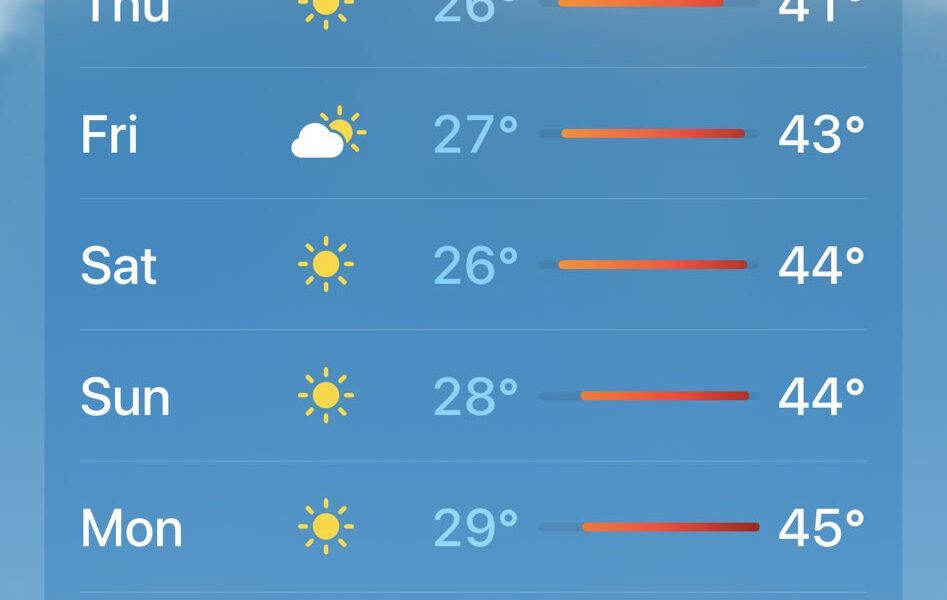By Dogga Luwo Go’do
Juba and various regions of South Sudan are currently in the grip of a scorching heatwave that shows no signs of relenting.
Meteorologists predict that this prolonged period of intense heat will persist for at least two weeks.
Therefore, everyone must take necessary precautions to ensure their safety and well-being during this sweltering and humid spell.
The effects of climate change have led to a rise in the frequency of excessive heat and humidity.
According to the Undersecretary in the Ministry of Environment and Forestry, Africano Bartel, this week, temperatures are expected to soar to a staggering 41 degrees Celsius, and in some areas, even reach up to 45 degrees Celsius.
“High heat and humidity may cause heat stress during outdoor activity or extended exposure. Extreme heat can cause illness and death among the at-risk population who cannot stay cool, such as seniors, infants, and those with chronic health problems or mental health conditions,” he said.
To safeguard yourself and others, Mr. Bartel advised that it is important to adopt basic safety measures to prevent heat-related illnesses and maintain comfort:
- Slow down and refrain from engaging in strenuous activities.
- Regularly check on individuals who are most at risk, including infants, young children, and older adults.
- Never leave children or pets unattended in a closed vehicle, as it can quickly become dangerously hot.
- Stay well-hydrated by drinking plenty of fluids throughout the day.
- Take refreshing cool showers or baths to lower your body temperature.
- Whenever possible, remain indoors and avoid direct exposure to sunlight. If you must venture outside, wear lightweight and light-coloured clothing.
- Seek out air-conditioned shelters or spaces to find respite from the heat.
- Keep the contact information of your doctor or healthcare facility readily accessible in case of emergencies.
In the event that the high temperatures persist, Mr. Bartel advised educational institutions and establishments lacking adequate cooling systems to suspend operations until more favourable weather conditions return.




